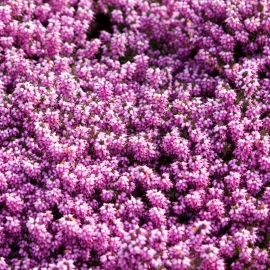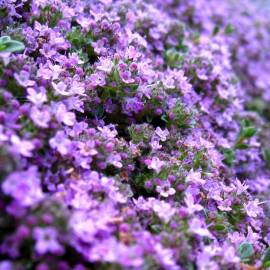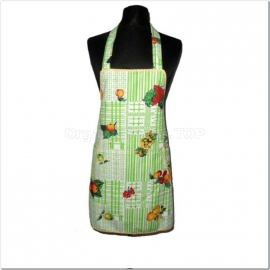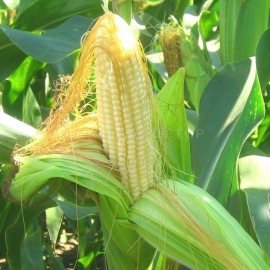


«Oz» - Organic Thyme Seeds
1.14 €
An aromatic, low growing herb, which is ideal for edging paths or filling pots on a sunny patio. The small flowers, which appear in late spring and early summer, come in a range of shades including pink, purple and white and are very attractive to bees.
-
Organic Thyme «Oz» (Thymus vulgaris)
An aromatic, low growing herb, which is ideal for edging paths or filling pots on a sunny patio. The small flowers, which appear in late spring and early summer, come in a range of shades including pink, purple and white and are very attractive to bees.
The scented foliage can be used fresh, dried or frozen to add flavour to a wide range of dishes. Keep well trimmed to allow new growth to come through.
There are many uses for thyme whether used fresh or dried. The fresh or dried leaves and flowers are often used in soups, stews, in stuffing, or tea. The leaves can also be used in potpourri, and as an insect repellent to repel insects such as moths. The essential oil of thyme is also added to soaps, toothpastes, cosmetics, perfumes, and antiseptic ointments. In aromatherapy it is used to relieve pain and elevate the mood. Thyme baths are great to help relieve aches and pains.
Growing Thyme
Wild thyme is a perennial herb that is hardy in zones 4 to 8. It can be grown in full sun to partial shade. The plant prefers moist, well-draining soil with a pH of 6.6 to 7.5. It will tolerate poor soil and drought quite well. The seeds are very tiny so you only need to surface sow the seeds onto soil that you have already watered.
If starting the seeds outside you can very lightly cover the seeds with sphagnum peat moss. Keep soil moist but never soggy until the seedlings have at least two sets of leaves, and then just water the plants regularly allowing them to dry in between waterings. If you started the plants indoors, transplant them outside after the last frost date has passed.
How to Make Thyme Tea
To make thyme tea add two teaspoons of dried thyme (4 teaspoons of fresh leaves) to your cup. Bring the water to a boil, turn off the heat and let cool for 5 to 8 seconds. Add the hot water to your cup of thyme and let simmer for 5 to 15 minutes. The longer you steep the tea the more medicinal it will become.
To maximize the health benefits it is best to cover the cup with a saucer or lid while the tea steeps; this is to help prevent the essential oils from escaping. The tea is preferably made with fresh leaves, if you have thyme in your garden simply cut some stems with lots of leaves and stuff the stems into your cup. The flowering tops can also be added to your tea.
Thyme Health Benefits
Thyme is rich in the essential oil thymol that can be used as a very strong antiseptic and antibacterial and applied to any cuts or abrasions. There are many health benefits of thyme. If used as a tea it has expectorant properties, and can be used to treat chronic coughs, or inflammation of the respiratory tract. The terpenoids which are present in all thyme varieties are recognized for their anti-cancer properties.
- Antiseptic, antibacterial, and anti-fungal.
- Expectorant, can be used to help treat bronchitis, chronic cough, and to treat inflammation in the lungs.
- Anti-cancer properties.
- Rich in antioxidants.
- Stimulates the nervous system and may help reduce stress, anxiety, depression, and insomnia.
- Can cure pinkeye if applied topically.
Products Viewed Before
Product code: 10499
1.14 €
Fragrant, delicious, and so attractive in garden and container, this winter-hardy thyme is irresistible in any partly shaded setting. It is a premier seed variety originally developed for professional growers and guaranteed to bring you big healthy crops.
Product code: 8150
22.50 €
A bright, beautiful and practical apron, which will not only be an ornament, but also a protection for everyday clothes. The apron is made of high-quality, environmentally friendly material of Ukrainian origin.
Product code: 12660
1.14 €
An early variety with very high taste. The period from germination to technical ripeness of heads is 75 days. Plants up to 2 meters in height, cylindrical heads, 17-19 cm long, 4-5 cm in diameter and weighing 150-170 grams. White grain.



